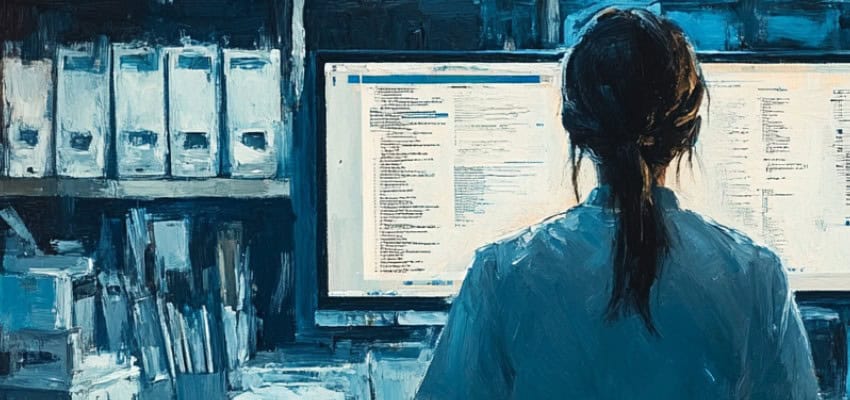Editor’s Note: This article covers the recent landmark ransomware attack on Change Healthcare, a UnitedHealth Group unit, which exposed sensitive health and personal information for over 100 million Americans. This breach, executed by the ALPHV/BlackCat ransomware group, has become the largest known incident of its kind in American healthcare. It underscores critical cybersecurity gaps within the healthcare sector, revealing the costly consequences of lacking essential safeguards such as multi-factor authentication. With potential ramifications for one-third of the U.S. population, this incident emphasizes the urgent need for robust security protocols to protect personal health information. This exploration of the breach offers valuable insights for cybersecurity, eDiscovery, and information governance professionals tasked with safeguarding critical data in high-risk sectors.
Content Assessment: Massive Data Breach at Change Healthcare Highlights Critical Cybersecurity Flaws
Information - 93%
Insight - 92%
Relevance - 92%
Objectivity - 93%
Authority - 94%
93%
Excellent
A short percentage-based assessment of the qualitative benefit expressed as a percentage of positive reception of the recent article from ComplexDiscovery OÜ titled, "Massive Data Breach at Change Healthcare Highlights Critical Cybersecurity Flaws."
Industry News – Cybersecurity Beat
Massive Data Breach at Change Healthcare Highlights Critical Cybersecurity Flaws
ComplexDiscovery Staff
In a watershed incident underscoring vulnerabilities within the healthcare sector, the February ransomware attack on Change Healthcare, a unit of UnitedHealth Group, exposed the personal information and health data of over 100 million Americans. UnitedHealth, a major U.S. health insurer, for the first time disclosed the full extent of the breach, marking it as the largest of its kind in American healthcare history, as confirmed by the U.S. Department of Health and Human Services’ Office for Civil Rights.
The breach, executed by the notorious ALPHV/BlackCat ransomware group, exploited a lapse in cybersecurity—a lack of multi-factor authentication on Citrix remote access software—allowing cybercriminals to infiltrate the system. The attackers extracted approximately 6TB of sensitive data, including medical records, insurance details, and personal identification, before encrypting the company’s networks. This led to widespread operational disruptions, affecting hospitals, pharmacies, and clinics nationwide.
The full ramifications of such a massive data leakage are profound, with personal data like Social Security numbers and medical conditions now potentially vulnerable to misuse. In response, UnitedHealth has been notifying affected individuals since July, offering complimentary credit monitoring and identity protection services through IDX. However, the challenge remains monumental, given the volume and complexity of the data involved.
According to Andrew Witty, CEO of UnitedHealth, the breach might have affected health information for about one-third of the U.S. population. This has raised concerns not only about the security measures that were in place but also about the critical importance of safeguarding sensitive health information, which Change Healthcare handles extensively as part of its operations with thousands of healthcare providers.
The U.S. Department of Health and Human Services has initiated investigations to determine compliance with federal privacy and security regulations by UnitedHealth and Change Healthcare. The breach also prompted discussions in Congress, highlighting the critical gaps in cybersecurity preparedness and the imperative to enforce stringent security protocols across the healthcare sector.
The breach further exposed systemic issues within the healthcare sector’s approach to data security. With UnitedHealth’s integration of Change into its operations, following a $7.8 billion merger with Optum, vulnerabilities had been magnified due to the sheer volume and sensitivity of the data handled. The attack has cost UnitedHealth between $2.3 and $2.5 billion, considering the direct financial impact and the operational disruptions caused.
In a bid to mitigate the fallout, UnitedHealth has strengthened its cybersecurity measures, now enforcing multi-factor authentication across its systems. Yet, the breach has sparked intense scrutiny from federal authorities, concerned with not only the incident itself but also the potential competitive advantages gained through accumulated data across UnitedHealth and Optum.
Ransomware attacks remain a potent threat, particularly within sectors handling vast amounts of personal data. The BlackCat group’s involvement, coupled with their extortive actions, highlights the need for ongoing vigilance in cybersecurity. While UnitedHealth paid a ransom to secure decryption keys and possibly halt further data distribution, the nature of such transactions remains precarious, often leaving doubts about the actual deletion of stolen data.
This incident serves as another wake-up call for healthcare organizations across the United States, emphasizing the necessity of robust cybersecurity frameworks. As investigations continue, the focus on how such breaches could be prevented in the future becomes ever more paramount, not only for protecting sensitive information but also for maintaining trust in the nation’s healthcare systems.
News Sources
- Hack at UnitedHealth’s tech unit impacted 100 million people, US health dept says
- UnitedHealth Ransomware Attack Exposed 100 Million People
- UnitedHealth says Change Healthcare hack affects over 100 million, the largest-ever US healthcare data breach
- 100 million Americans had health data exposed in UnitedHealth hack
- Cyberattack at UnitedHealth subsidiary Change Healthcare affected 100M Americans
Assisted by GAI and LLM Technologies
Additional Reading
- From Hacktivism to AI: ENISA’s 2024 Threat Report Unveils Evolving Cyber Dangers
- Hacker ‘Fortibitch’ Leaks Fortinet Data
- Halliburton Cyberattack Highlights Vulnerability of Critical Infrastructure
Source: ComplexDiscovery OÜ


























